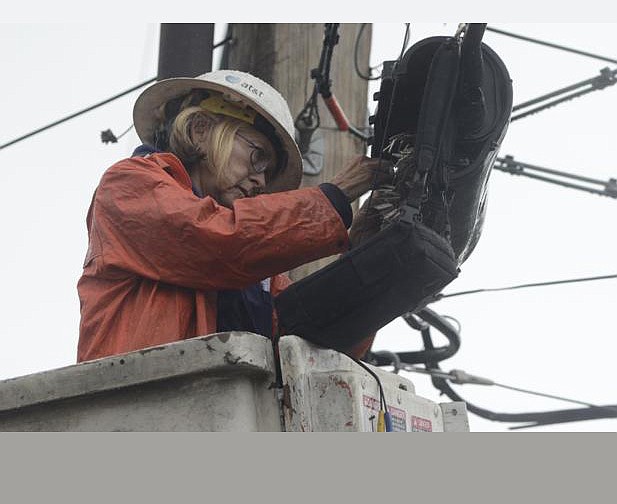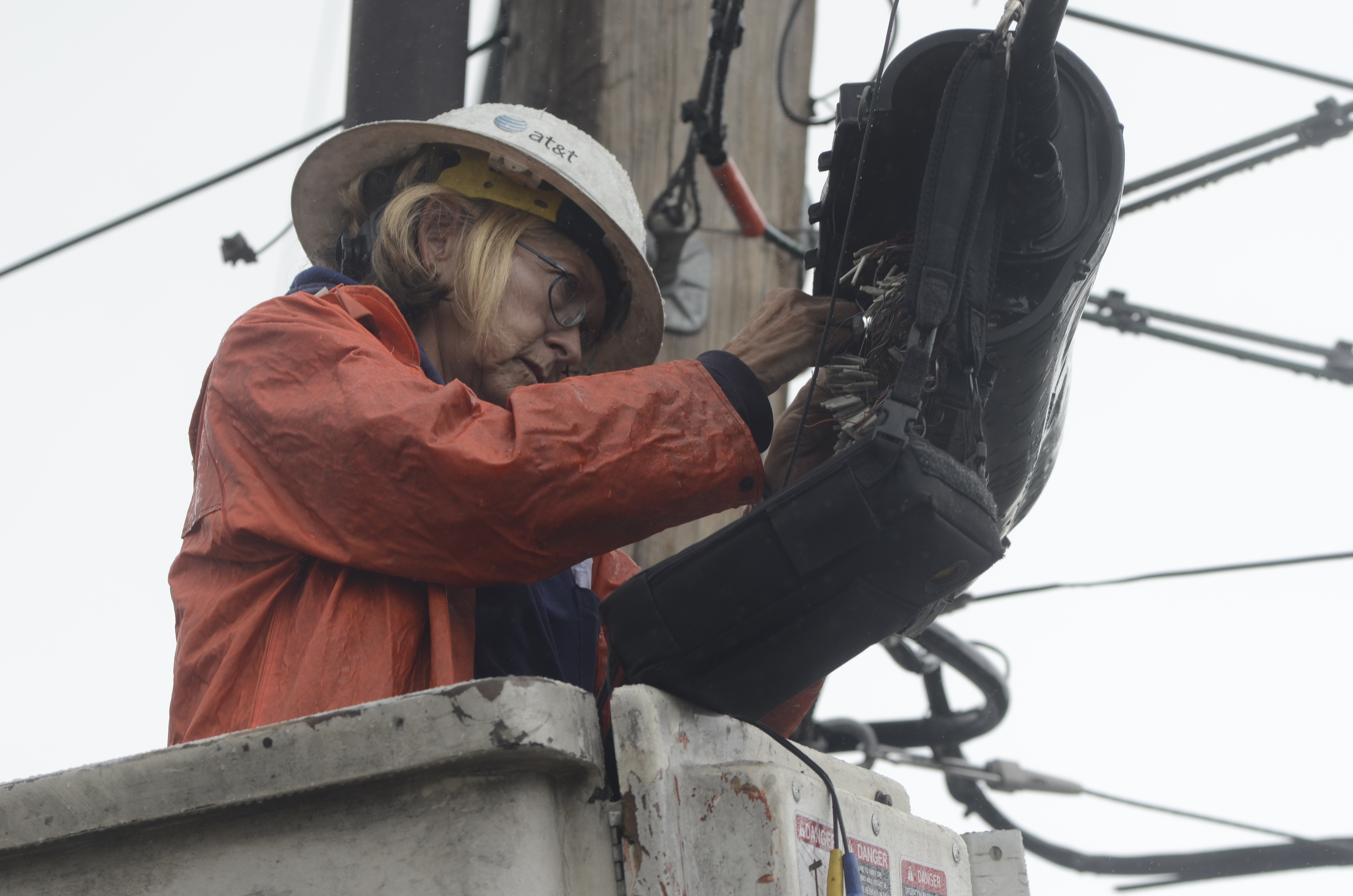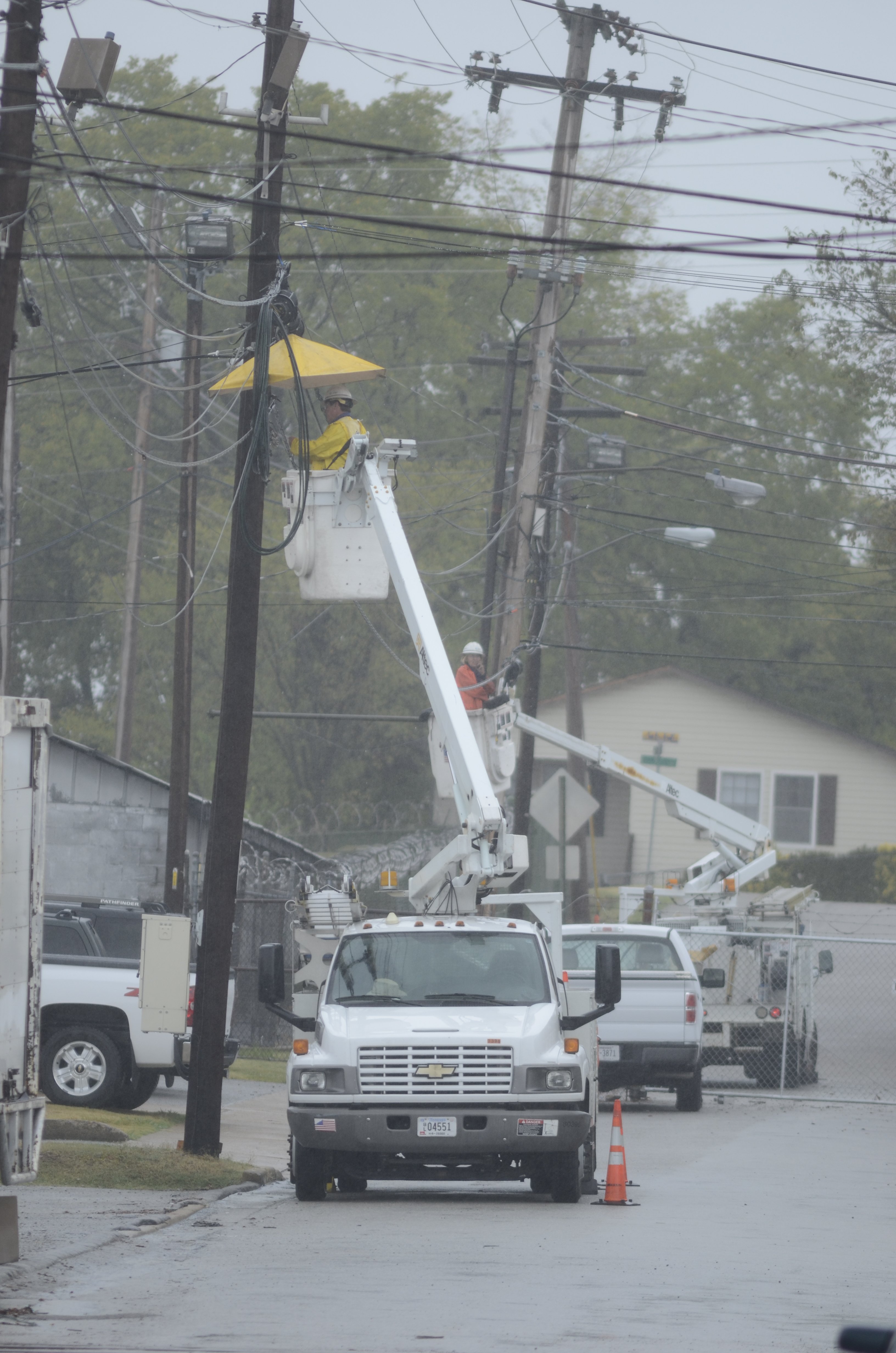Chattanooga-area cable customers could see their bills rise more than $13 per year under a worst-case scenario if a new law is approved by state legislators.
The law would position Tennessee as the most expensive state for private companies to hang wires on public utility poles, making the Volunteer State more than four times more costly than the national average.
"Certainly wherever you have a fee that's imposed at the government level, customers bear those costs," said Andy Macke, vice president for government and community affairs at Comcast.
The bill's backers claim such fees would keep energy rates low and force cable companies to pay their fair share of infrastructure expenses.
The bill could pass $1.34 million in costs on to video and Internet subscribers in Chattanooga, creating more than $20 million in new costs statewide. The Tennessee Cable Telecommunications Association says that will discourage broadband investment in Tennessee. At $20,000 per mile, the bill could erase 1,050 miles of planned broadband deployment, the association says.
"While other states are removing impediments to broadband deployment, the state of Tennessee, under the leadership of [state Sen.] Bo Watson and [Rep.] Jimmy Matlock, is pushing a bill to drive up the cost of broadband deployment," Macke said.
It's one of two dueling bills proposed by rival trade associations to resolve a long-simmering dispute about pole attachment fees, which are the fees utilities charge others to hang wires on their poles.
A repeatedly shelved cable industry-backed bill would spare cable customers but amounts to a taxpayer subsidy for cable companies, argued the state's electric monopolies. But while the cable companies' bill has never gained traction, Comcast and others are worried that a new effort by electric cooperatives and government-owned electric companies will shift the balance of power in the TV and Internet industry.
The bill has drawn fire from national taxpayer groups. Americans for Tax Reform sent a letter from organization president Grover Norquist to lawmakers urging them to oppose the bills. The Taxpayers Protection Alliance called the Republican-backed bill "bad for the free market and bad for consumers."
BALANCE OF POWER
The proposed legislation would create a system unlike any other in the country. Private companies would pay millions more in fees, which would directly benefit government-owned monopolies like EPB.
Yet EPB and other government-owned utilities that offer video and Internet services could avoid paying the increased utility pole fees -- which they themselves would set -- if the fiber-optic wires were originally designed for use by the electric system. The bill would establish two tiers of Internet service providers: those that offer electricity, and those that don't.
"It kind of defines common sense," Macke said. "I can't go in and provide electric service in Chattanooga, it's a government monopoly and those poles are part of that."
In years past, local electric monopolies installed and maintained the utility poles, charging Internet and telecom providers a national average of $7 each year to hang their wires. The extra cost to the electric company for Comcast to add a spool of wire to an existing pole was roughly zero, the reasoning went, so any revenue from cable companies was pure profit.
Under the twin bills currently being considered today by the Senate Commerce Committee, the total cost of a utility pole, normally between $100 and $120, would be divided equally among cable companies, Internet providers and electric monopolies. Rates per pole could rise from a state average of $17 per pole, per year -- already more than double the national average -- to about $33 per pole, per year, under the new system.
RED HERRING
But it's not fair to compare Tennessee's rates to the rest of the country, Watson said.
The partnership between TVA and its electric distributors creates a more complicated electric system than investor-owned utilities elsewhere in the U.S.
"It's a red herring to the situation here in Tennessee, and it's not applicable to our circumstances here," Watson said.
Charging a higher portion of the pole maintenance cost to private cable and Internet companies should keep electricity rates in Tennessee low, Watson reasoned, rather than subsidizing cable companies at the expense of electric ratepayers.
"I would argue the important factor is keeping electric rates low, and keeping those rates low is good for the citizens of Tennessee," Watson said. "Without electricity, you do not have broadband, you do not have lights, you do not have air conditioning. For an individual to have access to broadband, they have to first have access to inexpensive electricity."
Fears about skyrocketing cable rates are overblown, he said, because it's not in the best interest of city-owned electric boards like EPB to make broadband unaffordable for their citizens. Any sharp increase in fees paid by Comcast would only happen under a worst-case scenario, he said.
"Co-ops and municipalities are governed by local boards that are elected, so if you make your rates where you can't get broadband to come in, people are going to hold you accountable for that," Watson said.
DISPUTES
The bill also creates dispute resolution measures that don't currently exist, though Comcast complains that utilities essentially would become their own regulator.
Disputes that utilities and cable companies can't resolve on their own would first go before an administrative judge, whose only role would be to double-check their math, Comcast says. The dispute would then go right back to the public board that set the rates in the first place. The board could accept or reject the judge's findings. Cable companies can then file a complaint in chancery court, though "the review shall be confined to the record established before the administrative law judge and the written finding, if any, of the governing board," the law says.
Either way, the law would be a big win for EPB at the expense of its fellow video and Internet providers, the cable industry says. That's because while EPB is required by law to charge pole fees to its business telecom division, the utility's fiber-optics division pays no pole fees, said John Pless, a spokesman for EPB.
"The fiber wire that we run on our poles -- that is used to control the smart grid," Pless said. "The initial purpose was to create a more efficient energy distribution system. We don't pay for that fiber part."
However, any talk of raising rates on competitors is premature, Pless said. The bill only sets up the framework to resolve disputes between EPB and the private companies that hang wires on its poles -- it doesn't specifically address rates, yet.
"At the current moment, we have no plans to set different rates," Pless said. "We're all just waiting to see how this legislation works out to go on and continue our good faith negotiations with our competitors."


